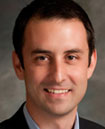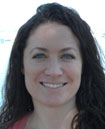KidSafe Seafood’s recommendations are developed and maintained under the guidance of a team of scientific experts. Click on the names below to read more about each of the advisors.
 David Carpenter
David Carpenter
David Carpenter is a public health physician who is currently the Director of the Institute for Health and the Environment at the University at Albany. He is a member of the Science Advisory Board of the International Joint Commission, and chairs a subcommittee there focused on the question of whether or not Great Lakes fish are safe to eat. He has published extensively on levels of persistent organic pollutants in farmed and wild salmon, as well as fish from the contaminated Adak Island in Alaska. Much of his recent research has focused on human health effects resulting from exposure to environmental contaminants, including neurobehavioral effects, diabetes, hypertension and heart disease. Fish contaminated with methyl mercury, PCBs, dioxins and chlorinated pesticides are major routes of exposure that contribute to development of these diseases.
 Timothy Fitzgerald
Timothy Fitzgerald
Tim currently manages EDF’s sustainable seafood program and specializes in the intersection of environmental sustainability and public health. He was a co-creator of the Ecofish SeafoodSafe program and is an advisor to the Atlantic States Marine Fisheries Commission Coastal Sharks Board. Tim is also a senior member of EDF’s National Policy team, advocating for more sustainable federal fisheries management policies and working with leading Gulf of Mexico fishermen towards safe, sustainable fisheries in the wake of last year’s BP oil disaster. Earlier in his career, Fitzgerald worked with EDF’s Corporate Innovation program and major seafood buyers to develop sustainable sourcing policies for both farmed and wild seafood. Tim earned an M.Sc. (2002) in Zoology from the University of Hawai’i, and a B.S. (1998) in Biology from Duke University. His graduate research focused on the behavioral ecology and sensory physiology of tropical sharks, making appearances on Discovery Channel’s Shark Week and National Geographic Explorer. He is a frequent speaker on conservation and human health issues concerning the U.S. seafood market, and has been featured in the Wall Street Journal, New York Times, and NPR’s Fresh Air, in addition to invited testimony in front of the President’s Oil Spill Commission.
 Kathleen Frith
Kathleen Frith
Kathleen Frith is dedicated to finding innovative ways to foster social change and create a healthier, more sensible world. As the Managing Director of the Center for Health and the Global Environment at Harvard Medical School, Kathleen plays a leadership role in all the Center’s activities, providing expertise on science communication and education and helping the Center achieve its mission to further understanding of human health and global environmental change connections. Kathleen’s topics of expertise include how human health depends on the ocean and how food affects our health and environment. Kathleen is Acting Director of Harvard’s first edible, community garden. She is also the Founder and Director of the Pleiades Network, Inc., a constellation of women working for a sustainable world.
Prior to joining the Center, Kathleen was the Public Information Officer for the Bermuda Biological Station for Research, a U.S. oceanographic institution in Bermuda. Kathleen holds a Bachelor’s degree in marine biology from the University of California Santa Cruz and a Master’s degree in science journalism from Boston University’s Knight Center for Science Journalism. Kathleen fills advisory roles in a number of science education and communication projects, and has published articles in a variety of publications.
 Emily Oken
Emily Oken
Dr. Oken is an Associate Professor in the Department of Population Medicine at Harvard Medical School and the Harvard Pilgrim Health Care Institute. She practices as a primary care physician at the Gretchen and Edward Fish Center for Women’s Health at Brigham and Women’s Hospital, where she pursues her interest in medical care for women before, during, and after pregnancy.
Dr. Oken received her medical degree from Harvard Medical School in 1996 and completed her internship and residency in internal medicine and pediatrics at the Harvard Combined Medicine/Pediatrics Residency Program. She completed her fellowship in general internal medicine at Harvard Medicine School. In 2003, Dr. Oken obtained her masters degree in public health from Harvard School of Public Health.
Her research interests include the influence of nutrition during pregnancy and early childhood on maternal and child health. She is co-Principal Investigator of Project Viva, a longitudinal cohort study of pregnant women and their children, and a member of the Obesity Prevention Program in the Department of Population Medicine. Dr. Oken has published widely on predictors and sequelae of maternal weight in the peripartum period, including excessive gestational weight gain, gestational diabetes mellitus, breastfeeding, and postpartum weight retention. She has also led a number of studies examining the effects of maternal fish consumption during pregnancy on child health, incorporating both the risks of contaminant exposure and the benefits of the healthful nutrients within fish.
In 2009, Dr. Oken was awarded the Rising Star Award by the Society for Pediatric and Perinatal Epidemiologic Research (SPER), recognizing an early to mid-career investigator expected to become a research leader in the field of reproductive, perinatal, and pediatric epidemiology.
 Erin Hudson
Erin Hudson
Erin Hudson is the Research Coordinator for the Monterey Bay Aquarium Seafood Watch program, which provides consumers and businesses with information regarding seafood sustainability, empowering them to make responsible choices for healthy oceans. Erin works on the Seafood Watch team to evaluate the environmental sustainability of various fisheries and aquaculture industries and communicates these evaluations to key NGO colleagues and partners. She previously worked for the Marine Conservation Biology Institute, where she focused on public policy regarding Marine Protected Areas. Erin received a B.S.in Environmental Science at the University of San Diego, and a M.Sc. in Coastal Marine Resource Management from the Donald Bren School of Environmental Science and Management.